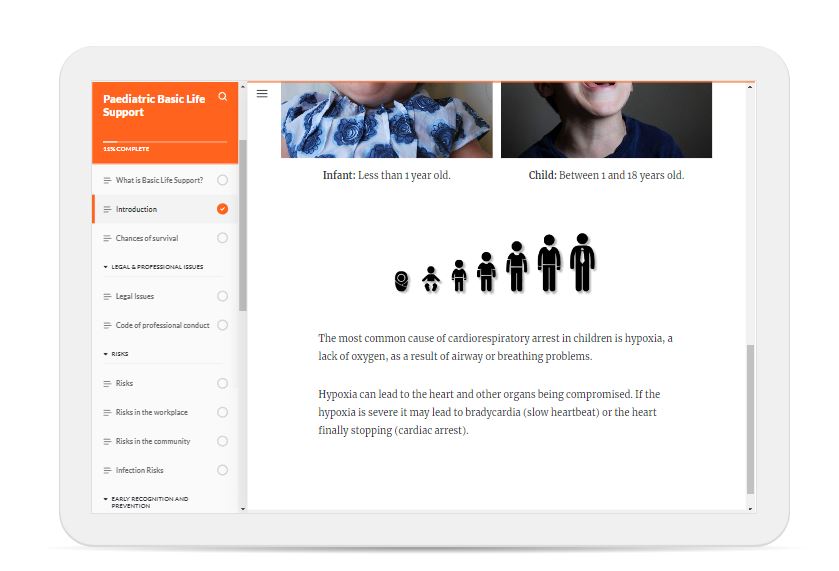Paediatric Basic Life Support

Please note: This study programme provides pre-course learning only. To achieve full certification you must attend a practical PBLS course.
It is a common expectation that healthcare staff will have sufficient knowledge and skills to be able to recognise and respond to signs of clinical deterioration. Where healthcare staff can anticipate, identify and respond to patient signs of clinical deterioration they can prevent further decline that might otherwise culminate in cardiorespiratory arrest.
Early and effective resuscitation can save lives. Research in emergency care of collapsed people has led to significant advances in resuscitation techniques. Healthcare organisations must have a clearly defined resuscitation policy and ensure that they provide an effective resuscitation response and service.
By completing/passing this course, you will attain the certificate Paediatric Basic Life Support
Course Content
- know how to recognise cardiorespiratory arrest
- know how to summon immediate emergency help in accordance with local protocols
- know how to initiate and maintain effective chest compressions in accordance with current Resuscitation Council UK (RCUK) guidelines
- understand national guidelines and local resuscitation policies and procedures
- know how to recognise and respond to patients with clinical deterioration or cardiorespiratory arrest, escalating care in accordance with local policy
- know how to initiate an appropriate emergency response, which may include management of choking and the use of the recovery position, in accordance with current RCUK guidelines
- know how to provide basic airway management i.e. ensure an open airway
- know how to initiate and maintain effective lung ventilations in accordance with current RCUK guidelines
- understand their individual role and responsibilities in responding to persons in emergency situations
- understand their individual responsibilities in reporting and recording details of an emergency event accurately
- understand the importance of undertaking any resuscitation interventions within the limits of their personal capabilities and context of any previous training receive
- know how they should apply the local Do Not Attempt Cardiopulmonary Resuscitation Policy within clinical context
